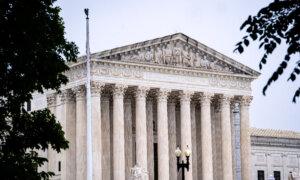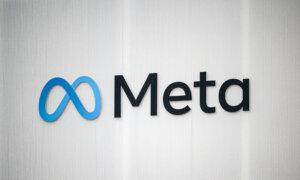The Ninth Circuit allowed the multibillion-dollar lawsuit to proceed after a federal district court threw out the shareholders’ claims three times.
Supreme Court justices appeared skeptical during Nov. 6 oral arguments about a social media giant’s attempts to shut down a shareholder lawsuit over a major data privacy breach.
At the hearing, Facebook parent Meta Platforms Inc. urged the court to dismiss a lawsuit accusing it of deceiving investors regarding a data-harvesting controversy that involved political consulting firm Cambridge Analytica.
The case involves a private securities fraud-related class action related to the now-defunct UK-based Cambridge Analytica’s “wrongful acquisition and misuse of Facebook user data,” according to Facebook’s filing with the nation’s highest court.
Meta agreed in December 2022 to pay out $725 million to settle a class-action proceeding that said the company permitted third parties, including Cambridge Analytica, to gain access to as many as 87 million users’ personal information.
Cambridge Analytica previously worked for then-candidate Donald Trump’s successful presidential campaign in 2016, and had access to personal data from millions of Facebook accounts for purposes of targeting and profiling voters. The account holders didn’t consent and had their data harvested by means of an app.
The scandal led to government investigations, and Meta CEO Mark Zuckerberg was called to testify before Congress.
Meta argues that the U.S. Court of Appeals for the Ninth Circuit erred in October 2023 when it allowed the multibillion-dollar lawsuit to proceed premised on allegations that Facebook, as the company was known at the time, inflated share prices by failing to provide adequate, legally mandated, public disclosure that its user data would be misused.
The investors claim that corporate actions contributed to two 2018 price drops that led to the company losing more than $200 billion in market capitalization.
A federal district court threw out the shareholders’ claims three times, but the Ninth Circuit revived them. Meta said in its petition that the circuit “adopted extreme outlier positions.”
During oral argument on Nov. 6, Meta attorney Kannon Shanmugam said the Ninth Circuit’s rule “threatens to create a sweeping regime of securities liability for omissions” when it held that “a risk disclosure can be misleading simply because a company does not disclose that the specified triggering event for the risk had occurred in the past.”
This approach could lead to “over-disclosure and fraud by hindsight, and this court should reject it.”
Justices Elena Kagan and Ketanji Brown Jackson seemed sympathetic to the shareholders.
Kagan told Shanmugam that investors need to know about risks at a company in order to make informed decisions.
“These forward-looking statements [in disclosure documents] can be misleading as to things that have occurred in the past,” she said.
Jackson told Shanmugam that Meta’s argument wasn’t paying enough attention to the possibility that events in the past could lead to harm in the future.
“What is misleading is the suggestion, when you make your statement completely futuristic, that no such future harm is going to occur,” she said.
Other justices seemed more concerned about the possible implications of ruling in favor of Meta.
Chief Justice John Roberts told the shareholders’ attorney, Kevin Russell, that siding with his clients could lead to “a real expansion of the disclosure obligation.”
Justice Brett Kavanaugh wondered why the courts should get involved in the dispute at all.
He suggested to U.S. Department of Justice attorney Kevin Barber that it would be easy for the U.S. Securities and Exchange Commission (SEC) to clarify disclosure rules.
“Why can’t the SEC just write a [regulation]?” Kavanaugh said. “Why does the judiciary have to walk the plank on this and answer the question when the SEC could do it?”
Justice Neil Gorsuch told Russell that the investors probably already knew that data breaches frequently happen at large corporations.
“I think China probably has all of our FBI files,” he said. “Data breaches are part of our lives these days.”
But there wasn’t a data breach in this case, Russell said.
Facebook gave a developer access to user data but disclosed little information about the practice, he said.
“Reasonable investors would have thought that it never happened, and particularly on this scale.”
“That’s why users were so angry when they found out about this,” Russell said, answering a question from Justice Amy Coney Barrett.
The Supreme Court is expected to rule on the case, Facebook Inc. v. Amalgamated Bank, by June 2025.
Original News Source Link – Epoch Times
Running For Office? Conservative Campaign Consulting – Election Day Strategies!


